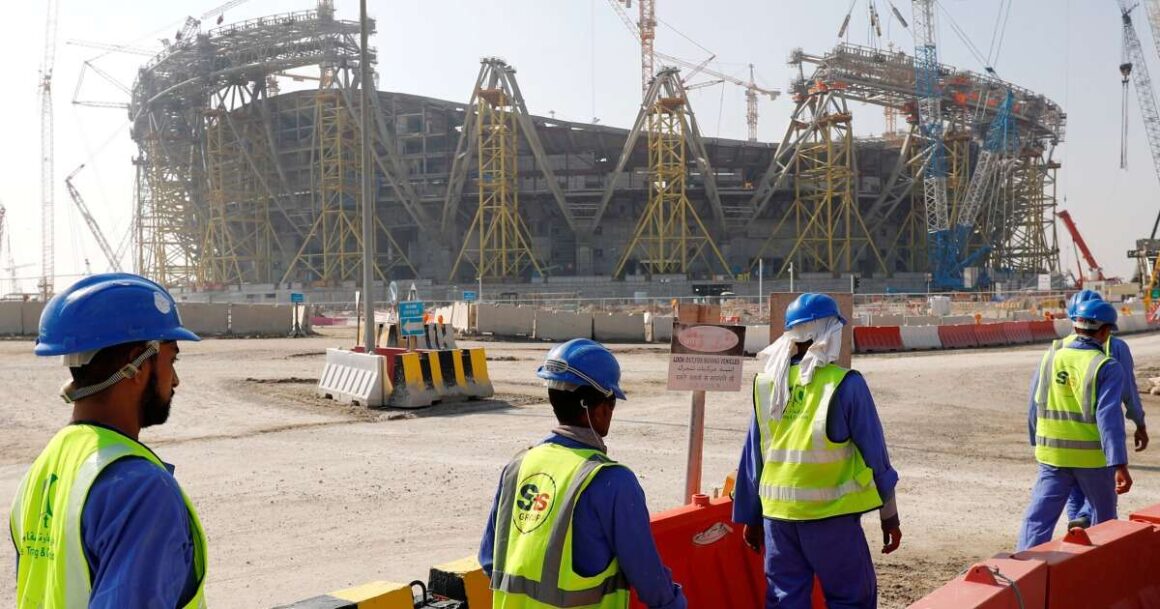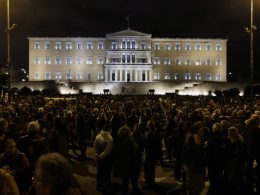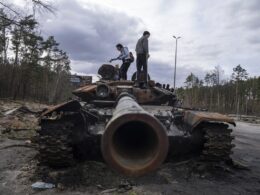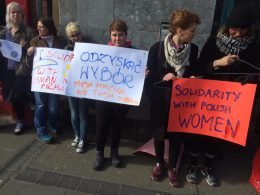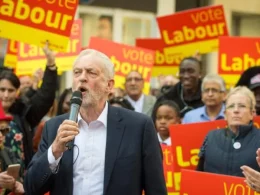By Kevin Henry
November 2022 will see the start of the world’s most expensive world cup in history. It is an estimated $220 billion budget for infrastructure and other projects linked to the world cup. This money has been put into seven new stadiums, and dozens of major projects have been completed or are underway, including a new airport, roads, public transport systems, hotels and even a new city, which will host the World Cup final.
Kafala system: modern slavery
Yet the conditions faced by the largely migrant workforce can be seen in one horrific statistic, over 6,500 workers have died in work-related death in Qatar since being awarded the world cup ten years ago. As one headline put it the “World Cup will be played in a cemetery”. Many of these workers died as a result of heat exhaustion when they were expected to work long hours days in with average high temperatures of around 41°C for less than $300 a month- the equivalent of about $1 an hour.
A key reason for these brutal conditions is that like other Gulf states it operates a system known as ‘Kafala’ (Arabic for ‘sponsorship.’) The Kafala system leaves workers at the complete mercy of their contractors. Under this system, workers cannot change jobs without the permission of their employers.
In the period leading up to the world cup, thousands of migrant workers in Qatar had their contracts cancelled and were forced to return home, in many cases without pay and still burdened with massive debts.
Repressive state
Against this backdrop and faced with public pressure internationally, the Qatar state have been forced to implement some reforms of this system. They have also on paper introduced regulations on working in high temperatures which are rarely enforced in practice. Many commentators, including those who receive expensive junkets to visit Qatar, have emphasised these reforms. In reality, what such individuals are doing is whitewashing slavery. The reform of the ‘kafala’ system has kept key pillars of that system of modern-day slavery in place including the continued criminalisation of l “absconding.”
Alongside these horrific workplace condition, a spotlight has rightly been shared on the oppression of women and LGBTQ people. Homosexuality is illegal in Qatar and amnesty international have highlight that people have been jailed and beaten until they signed contracts saying they would not engage in ‘immoral’ behaviour. This highly oppressive regime fits hand and glove with kafala system which is not just used against largely male construction workers but thousands of domestic servants. The conditions on Qatar Airline shows the conditions of women workers. Until recently women could be fired for getting married, getting pregnant, being in a relationship, being out of their living quarters late at night or drinking alcohol.
Build international solidarity
While many famous figures in the football world like David Beckham are complicit in whitewashing these conditions by becoming ambassadors for the world cup others like Eric Cantona have been vocal in condemning Qatar. Cantona recently comments that “It’s only about money and the way they treated the people who built the stadiums, it’s horrible. And thousands of people died. And yet we will celebrate this World Cup. Personally, I will not watch it. I understand football is a business. But I thought it was the only place where everybody could have a chance.”
Cantona correctly points the finger at those responsible not just the Qatar regime but the football federations, multinational sponsors and politicians who allowed the world cup to happen in Qatar. Alongside an approach of highlighting the conditions and who is to blame we need to show solidarity with those brave workers prepared to take action. Migrant workers who work in construction and in security have also taken to social media apps like TikTok in order to share their stories of not being paid for six month and even videos of strikes and protests, several of those workers have faced threats of being deported. Token reforms from above have not delivered for workers and oppressed people in Qatar, it will take building a mass movement of these workers in order to smash the kafala system and ultimately capitalism which profits from it.





